Mervyn King warned the public last night that a decade of sobering up was in prospect as Britain worked off the economic hangover caused by the financial crisis and recession of the past three years.
On the eve of George Osborne's spending review, the Bank of England governor said the coalition's attempts to balance its books would need to be matched by individuals saving more and by a worldwide "grand bargain" to secure better-balanced growth between countries.
King told a gathering of business leaders in Wolverhampton that there might be a need for further action from the Bank of England to boost the economy in the event that sluggish growth heightened the risk of inflation falling below its official 2% target. The remarks are likely to be seen by the City as a hint that the governor is gradually warming to the idea of a resumption of Threadneedle Street's quantitative easing (QE) programme, which creates electronic money by buying government bonds from banks.
Osborne has given the Bank the go-ahead for more QE in the event that the economy continues to sag – a risk highlighted today by one of the UK's leading economic forecasting groups.
The National Institute of Economic and Social Research said two years of falling real incomes would put the brakes on growth and result in the government failing to meet its tough targets for cutting the deficit during the current parliament.
NIESR said it expected growth of 1.6% in both 2010 and 2011, but said consumers faced "the dismal prospect of two successive years when real disposable income falls, by 0.8% in 2010 and 0.6% in 2011".
King said last night that he had coined the expression "the nice decade" on a previous visit to speak to the Black Country chamber of commerce, referring to the non-inflationary consistent expansion during the period up to 2003. But he said: "The next decade will not be nice. History suggests that after a financial crisis the hangover lasts for a while. So the next decade is likely to be a sober decade – a decade of savings, orderly budgets, and equitable rebalancing."
The governor added that the determination of the leading developed and developing nations of the G20 to work together had ebbed away since the financial crisis was at its worst in late 2008. Countries had to realise, he said, that the alternative to working together to ensure a high level of global demand would be a return to the protectionism of the 1930s.
"A sober decade may not be fun but it is necessary for our economic health."
The Bank has left the base rate at 0.5% for the past 20 months and capped QE at £200bn in February. King admitted the nine-strong monetary policy committee was split on what to do next but ready to boost the supply of money if required.
"The key question is whether the current inflation rate signals that inflation will persist above target. The MPC is conscious that the continuing high level of inflation poses the risk that inflation expectations may move up. And it may be some while before inflation returns to target," he said.
"But at present, there is also a risk – at least as large – that once the temporary upward influences on inflation dissipate, the influence of spare capacity in the economy will push inflation below the target. Consistent with that possibility, a range of other indicators – growth in broad money, pay, and the pressure of demand on supply, that together are likely to be a more reliable guide to inflationary pressure looking ahead – all remain extremely subdued. So not only can monetary policy play a role in smoothing the rebalancing process, it needs to do so if the outlook for inflation is to remain in line with the 2% target in the medium term."
Both King and Osborne are keen to see the UK rebalance towards manufacturing, investment and exports, although yesterday's snapshot of industry from the CBI showed growth in output and orders both weaker in the latest quarter. Business optimism also waned.
Ian McCafferty, the CBI's chief economic adviser, said the employers' organisation expected the dip to be temporary. "The recovery in the manufacturing sector is well grounded and looks set to continue, despite a soft patch last quarter, when production growth slowed as firms had expected. Over the next three months, firms predict a strong rise in output driven by predictions of firmer export orders growth, while support from stockbuilding fades."
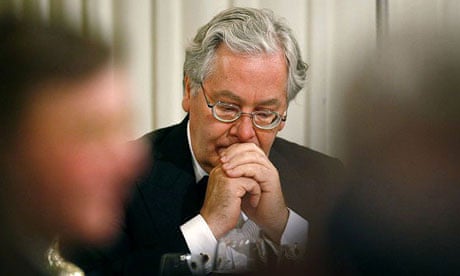
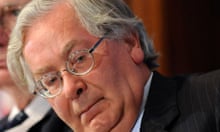
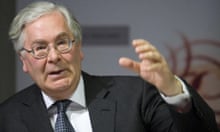

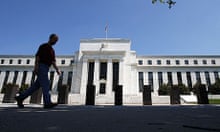
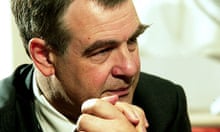

Comments (…)
Sign in or create your Guardian account to join the discussion